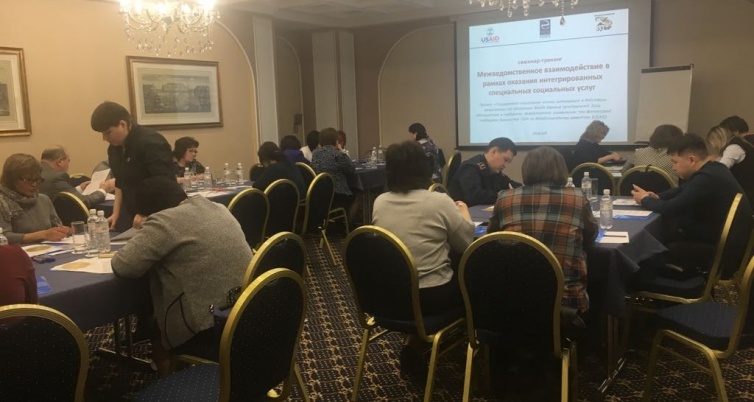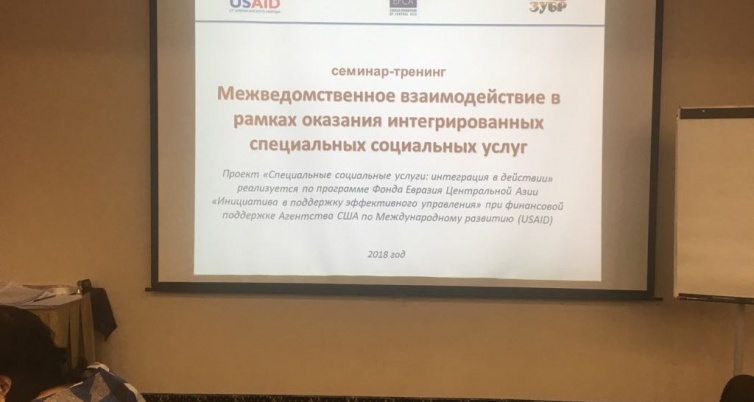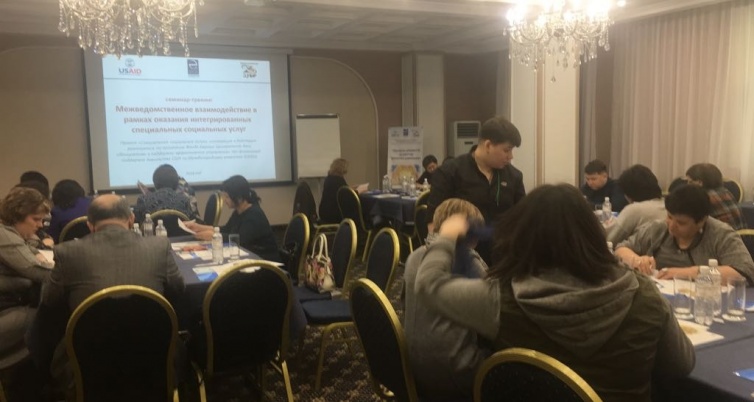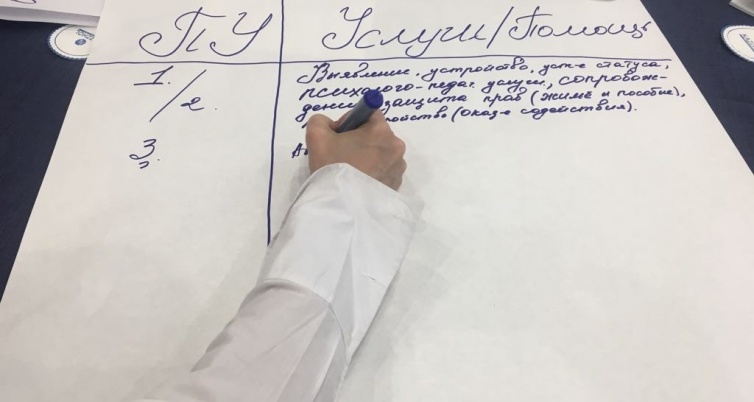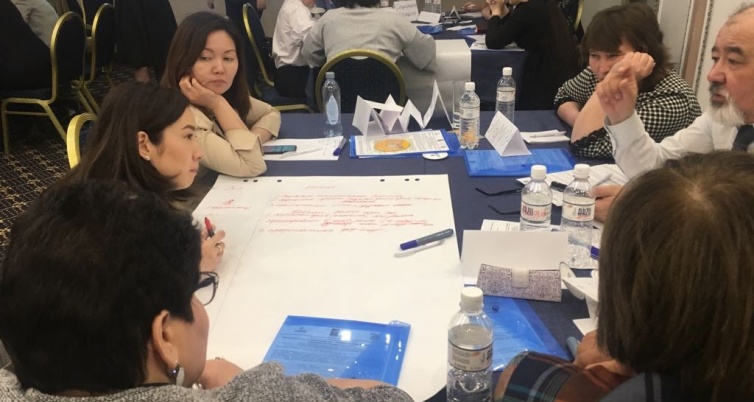Подпишитесь на наши новости:
News
другие News
European Union supports more active role of women and youth in decision-making in Kazakhstan
Qolda emergency assistance project
Qolda emergency assistance project
April 19, 2018
Specialists in Astana and Almaty learned how to deliver special social services
The Social Corporate Foundation “ZUBR” hosted a Republican workshop “Integrated Special Social Services: interdepartmental cooperation” on March 15-16, 2018 in Almaty and on April 5-6 in Astana.
The goal was to improve knowledge and practical skills to apply integrated methods in delivery of Special social Services (SSS) for specialists in education, healthcare, law enforcement agencies, and NGOs.
The geography of the attendees was represented by the cities of Astana, Almaty, South Kazakhstan, Zhambyl, Kyzylorda, Atyrau, Akmolinsk, West Kazakhstan, Almaty and Aktobe oblasts.
The workshop program included theoretical and practical parts on how to improve the legislation within the delivery of SSS; common scheme to work with service receivers; monitoring and evaluation of service quality.
“Training was very useful for me. I personally met the representatives of different organizations – NGOs and state bodies. They aligned by one mutual goal – improvement of social life. They try to find common practices and points in development of work plan directions of the cooperation for future”, - said Amanat Mussin, manager on external communications and analytics, “Association for parents of children with disabilities” (Almaty).
“We need to raise the social level of citizens, for that we lacked the integration of various sectors”, - shared the idea Nurzhamal Ryskulova, representative of Almaty akimat.
During the workshop, interim results of the development and testing of the pilot model of ISSS (schemes, algorithms, regulatory legal analysis, and success stories) were presented.In addition, specialists from interdepartmental groups of pilot cities and districts of the Republic of Kazakhstan were able to share their experience and gave practical recommendations developed during the approbation of ISSS.
According to the law, 11 categories of persons and families in difficult life circumstances have the right to receive SSSs; among them are children, disabled persons, and ex-convicts. Work with these categories is conducted not only by social protection institutions, but also by educational, healthcare, and law enforcement agencies. Unfortunately, the ever-expanding network of institutions, professionals, increased funding - still does not significantly increase social welfare of the people in need. The number of suicides, disadvantages families, and the number of those who for various reasons cannot escape difficult life circumstances are not decreasing.
Today every sphere operates according to its own rules, and the client has to visit many institutions to obtain the services he/she needs. Thanks to the introduction of integrated model, access to the full range of guaranteed social services and benefits will be ensured through the "one-stop" principle. Integration brings together professionals from different spheres around the situation of a particular person/family. This approach enables to decrease number of people who find themselves in a difficult life circumstance, to receive assistance and services in a short time without the unnecessary bureaucratic barriers, to rise up the level of their welfare.
Activity on introduction of the Integrated model of SSS is implemented according to Kazakhstani Concept of Social Development - 2030.
The project is funded by the United States Agency for International Development (USAID) through the Eurasia Foundation of Central Asia program "Good Governance Initiative Fund".




